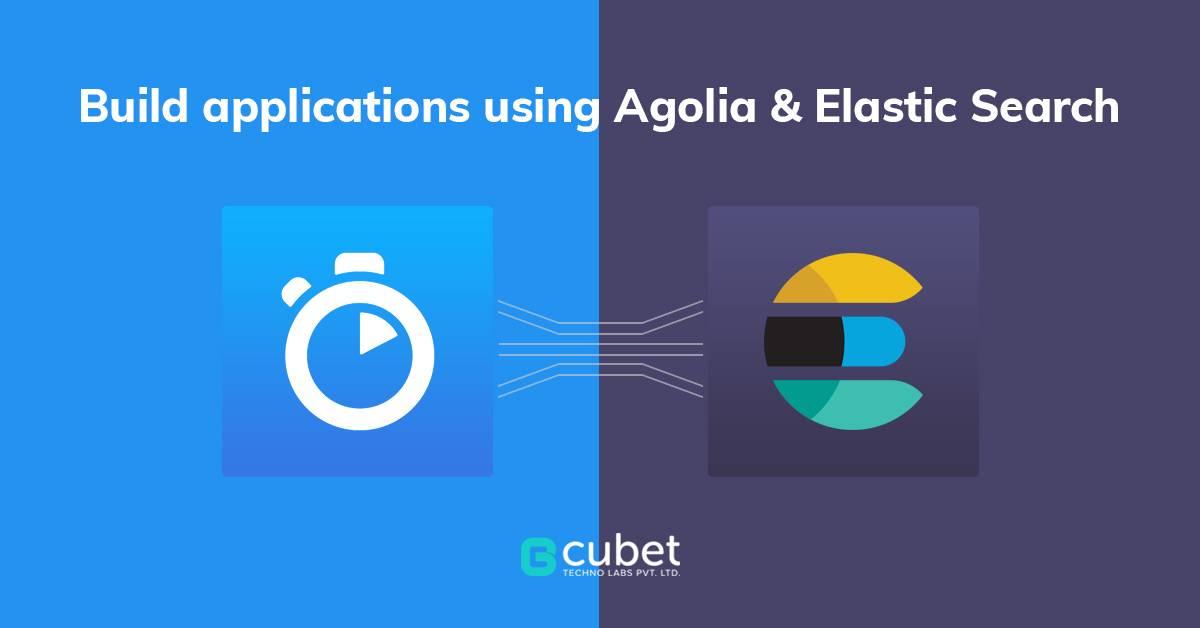How Algolia & Elastic Search Help You Build Real-Time Applications?

If you the owner of an online business, offering a seamless search experience for the customers is undoubtedly one of your prime concerns. Selecting the right provider can be tricky because there are several factors to consider in this regard.
The best site search solutions will help you meet your business challenges by being scalable and they incorporate comprehensive analytics for easy reporting and improvement. And two of the foremost names that come to mind in this regard are Algolia and Elasticsearch.
What Is Algolia?
Algolia is an onsite search engine that contains analytical functions. It enriches the search experience with infinite scrolling, query suggestions, filters, and autocomplete.
Furthermore, it offers extensive documentation, personalized relevance algorithms, several integrations, front-end widgets, and backend AP clients for the developers. Algolia is more of a full-service search provider, but it can still be built up further.
What Is Elasticsearch?
Elasticsearch is a RESTful, distributed search and analytics engine. It is an open-source platform that offers varied APIs and excellent search speed, and an internally managed search-as-a-service solution. Think of it as a basic search application that developers like to build a deep search over it.
Algolia v/s Elasticsearch: A Comparison
Algolia and Elasticsearch have a number of differences and similarities. Here’s running a brief comparison between these two site search solutions –
1. The Speed Factor
Getting fast responses in real-time makes the users happy, making speed an essential element in each tool. Elasticsearch fares well for document search out-of-the-box. A lot of additional investment is needed for delivering a feature-filled, user-friendly search.
Algolia is meant to control latency. Benchmarking tests have shown that Algolia returns two hundred times faster results than Elasticsearch.
2. The Customer Base
Algolia and Elasticsearch are both popular tools that index the data to make it easy and quick to search. The customer base is pretty great for both Algolia and Elasticsearch. Uber, Netflix, Twilio, Slack, Microsoft, Walmart, Adobe, and more are popular customers of Elasticsearch.
Algolia also contains several top customers like Amplitude, Amazon, Coursera, BirchBox, Intuit, Lacoste, Slack, Cafeyn, and more.
3. Dashboard & UI Visualization
Users would certainly want to use a graphical user interface that is easy to understand and use. Elasticsearch needs installing Kibana for data visualization or adding an extension to the browser for interacting with it. The plugins offer a communicative dashboard to interact with it.
On the other hand, Algolia provides front-end widgets and APIs for an enhanced user experience. The dashboard of Algolia has a number of filters that make it an improved machine-human interface compared to others. It lets you configure those to perceive user history/behavior or data in a simple manner.
4. The Hosting Factor
Elasticsearch is the search engine that gets self-hosted on the server you have. Thus, it can set up the system in any way you like. The issues of permission and security form a major drawback, despite the flexibility it offers.
Algolia is a hosted SaaS option. It handles the storage of the entire data and index system hosting. It isn’t a database but a hosted search engine.
The Bottom Line
So, do you want to know more about the capabilities of Algolia and Elasticseach and choose the best option for your online business?
Get in touch with Cubet today, and let us help you find the solution you need.
Call now!